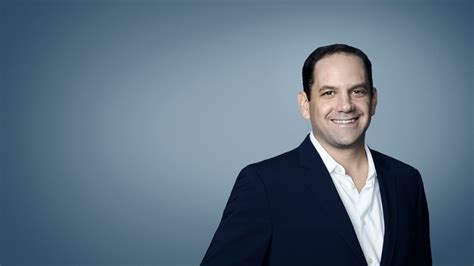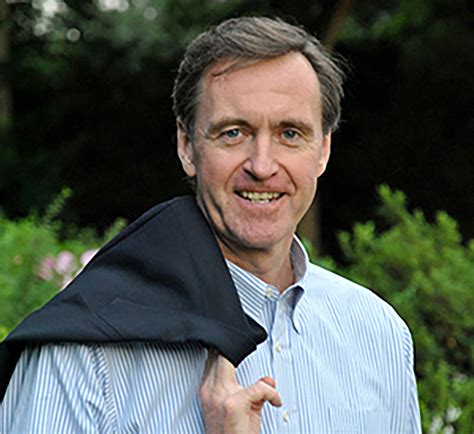Top 494 Microsoft Quotes & Sayings - Page 9
Explore popular Microsoft quotes.
Last updated on April 19, 2025.
Whether advanced driver training helps drivers in the long term is one of those controversial and unresolved mysteries of the road, but my eye-opening experience at Bondurant raises the curious idea that we buy cars—for most people one of the most costly things they will ever own—with an underdeveloped sense of how to use them. This is true for many things, arguably, but not knowing what the F9 key does in Microsoft Word is less life-threatening than not knowing how to properly operate antilock brakes.
I believe there's plenty of market for each; we're talking about an ecosystem that is going to support billions of devices, so a competitive landscape is good for consumers, developers, and the platforms alike. Apple brings a smooth elegance to its devices and platform, with the best marketplace experience to boot. Google brings a higher volume of devices as well as a more diverse ecosystem to interact with. The real story here is that Microsoft is nowhere to be seen, ending a two-decade monopoly and creating biggest opportunity for software startups probably ever.
Sometimes at night I worry about TAMMY. I worry that she might get tired of it all. Tired of running at sixty-six terahertz, tired of all those processing cycles, every second of every hour of every day. I worry that one of these cycles she might just halt her own subroutine and commit software suicide. And then I would have to do an error report, and I don't know how I would even begin to explain that to Microsoft.
The United States, Russia, and China are the only three countries in the world that can launch astronauts into space. Mostly in the U.S. you see some companies trying to launch private commercial people into space, but nobody's done it yet. The only private vehicle that's made it into space so far is Spaceship 1 in 2004, and that was an effort that was funded by one of the Microsoft founders, and he spent about $20 million to develop this spacecraft to do a sub-orbital flight. And it's not the same as going into orbit, but it was a huge first step.
The one thing that I think separates Microsoft from a lot of other people is we make bold bets. We're persistent about them, but we make them. A lot of people won't make a bold bet. A bold bet doesn't assure you of winning, but if you make no bold bets you can't continue to succeed. Our industry doesn't allow you to rest on your laurels forever. I mean, you can milk any great idea. Any idea that turns out to be truly great can be harvested for tens of years. On the other hand, if you want to continue to be great, you've got to bet on new things, big, bold bets.
When technology is used as a gimmick it can be a terrible distraction. The trick is to harness technology in a way that empowers the audience, informs them and brings them closer to the action. CNN has always been an innovator on election night, with the Magic Wall leading the way. Tonight, for the first time, and we're going to put the Magic Wall in the hands of our audience. Along with our partners at Microsoft, we have built a tool to let our users drill down into the key races and access a great deal of data, real time, as the results are unfolding.
A technology becomes truly disruptive when it drives the marginal cost of something that used to be scarce and expensive to approach zero. Thus, it used to be to deploy software at scale, you had to fund a data center, buy a set of servers, storage, and networking gear, build an in-house IT management capability, and buy an expensive stack of enabling software before you could even get started. Now you can get all that from Amazon or Microsoft on a pay-as-you-grow model.
To blindly trust government is to automatically vest it with excessive power. To distrust government is simply to trust humanity - to trust in the ability of average people to peacefully, productively coexist without some official policing their every move. The State is merely another human institution - less creative than Microsoft, less reliable than Federal Express, less responsible than the average farmer husbanding his land, and less prudent than the average citizen spending his own paycheck.
UNIX has a philosophy, it has 25 years of history behind it, and most importantly, it has a clean core. It strives for something - some kind of beauty. And that's really what struck me as a programmer. Operating systems that normal home users are used to, such as DOS and Windows, didn't have any way of life. Nobody tried to design Windows - it just grew in random directions without any kind of thought behind it. [...] I don't think Microsoft is evil in itself; I just think that they make really crappy operating systems.
With our technology, with objects, literally three people in a garage can blow away what 200 people at Microsoft can do. Literally can blow it away. Corporate America has a need that is so huge and can save them so much money, or make them so much money, or cost them so much money if they miss it, that they are going to fuel the object revolution.
We are getting close to the point where as every platform of tech that has any level of scale gets bought by either Google or Facebook or sometimes Microsoft. We are getting to the point where we see some oligopoly in terms of behavior online, and that it's really problematic because the oligopolies are completely non transparent, they are terrible in terms of labor and economic equality and they support systems of surveillance. It can create a world where we are all placed in bubbles, where the systems themselves can be manipulated by people who don't have our best interests in mind.
We'll get a chance to go through this [Apple versus Microsoft debate] again in phones and music players. There's no chance that the iPhone is going to get any significant market share. No chance. It's a $500 subsidized item. They may make a lot of money. But if you actually take a look at the 1.3 billion phones that get sold, I'd prefer to have our software in 60% or 70% or 80% of them, than I would to have 2% or 3%, which is what Apple might get.
The church is like any large corporation in one respect. In its early days, either the early church or the early years of Microsoft, you see all kinds of creativity, innovation, invention, people have nothing to lose, they're trying to find what works. Then you wake up and you're a vast enterprise, and it's very hard, when you have all kinds of buildings and structures and hierarchy and so on, to hang on to these very creative impulses that helped you get your great success in the first place. As a church we're going to have to figure a way out from under this.
The company [Microsoft] really has to chart a direction in mobile devices. Because if you're going to be mobile-first, cloud-first you really do need to have a sense of what you're doing in mobile devices. I had put the company on a path. The board as I was leaving took the company on a path by buying Nokia, they kind of went ahead with that after I told them I was going to go. The company, between me and the board, had taken that sort of view. Satya, he's certainly changed that. He needs to have a clear path forward. But I'm sure he'll get there.











